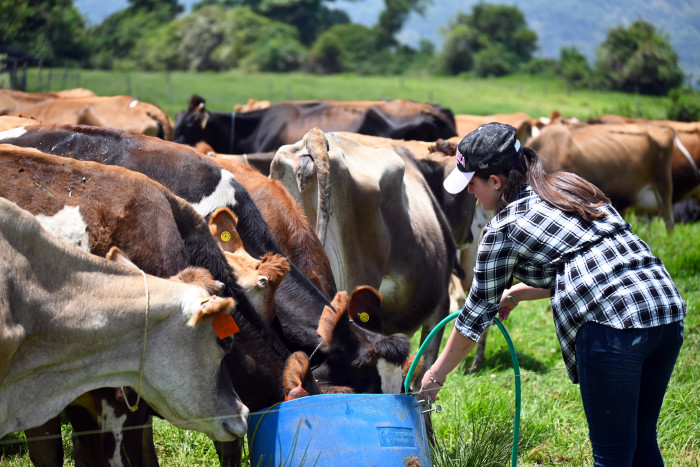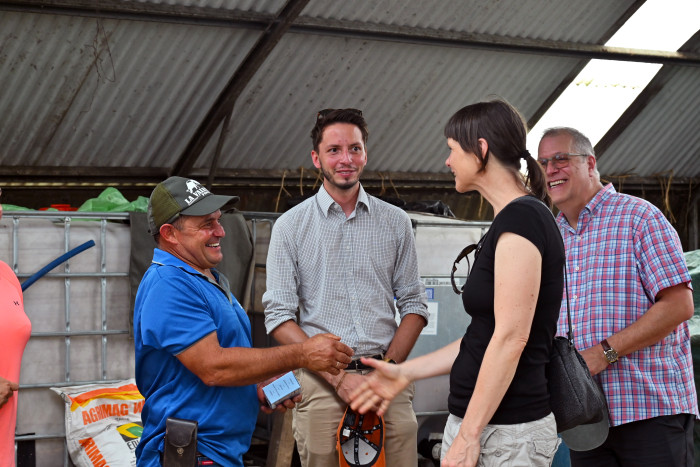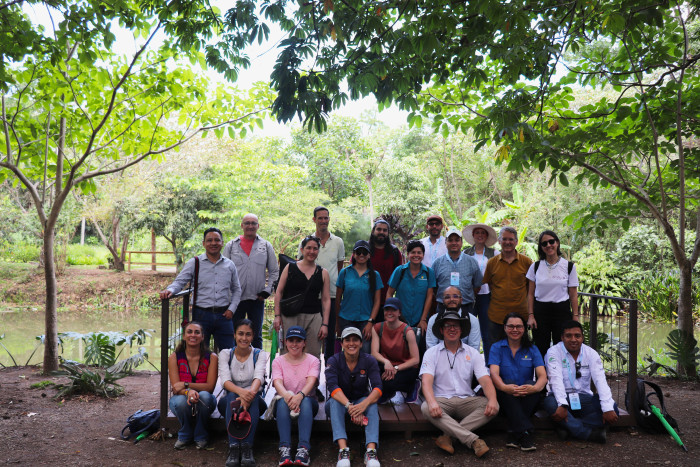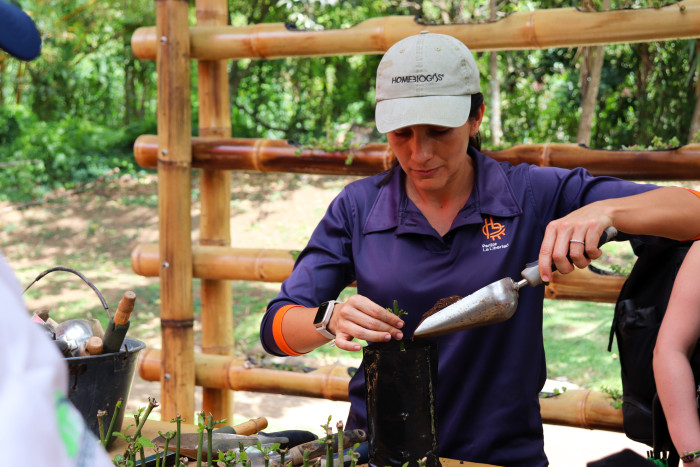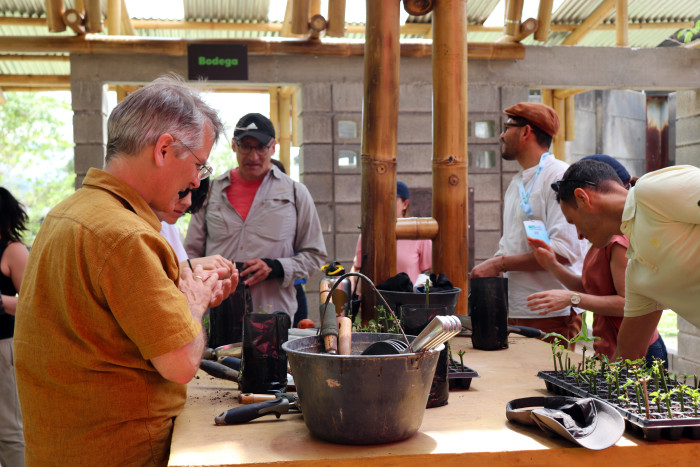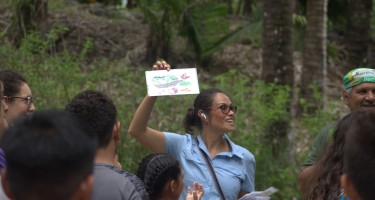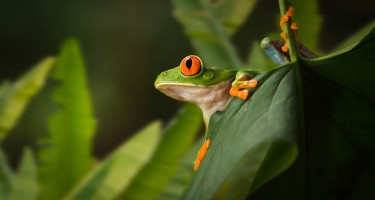Showcasing impacts: Field trips to IKI projects in Costa Rica
Two field trips allowed participants from the entire region to learn about the efforts and results in sustainable livestock farming and the implementation of nature-based solutions implemented by IKI projects in the country.
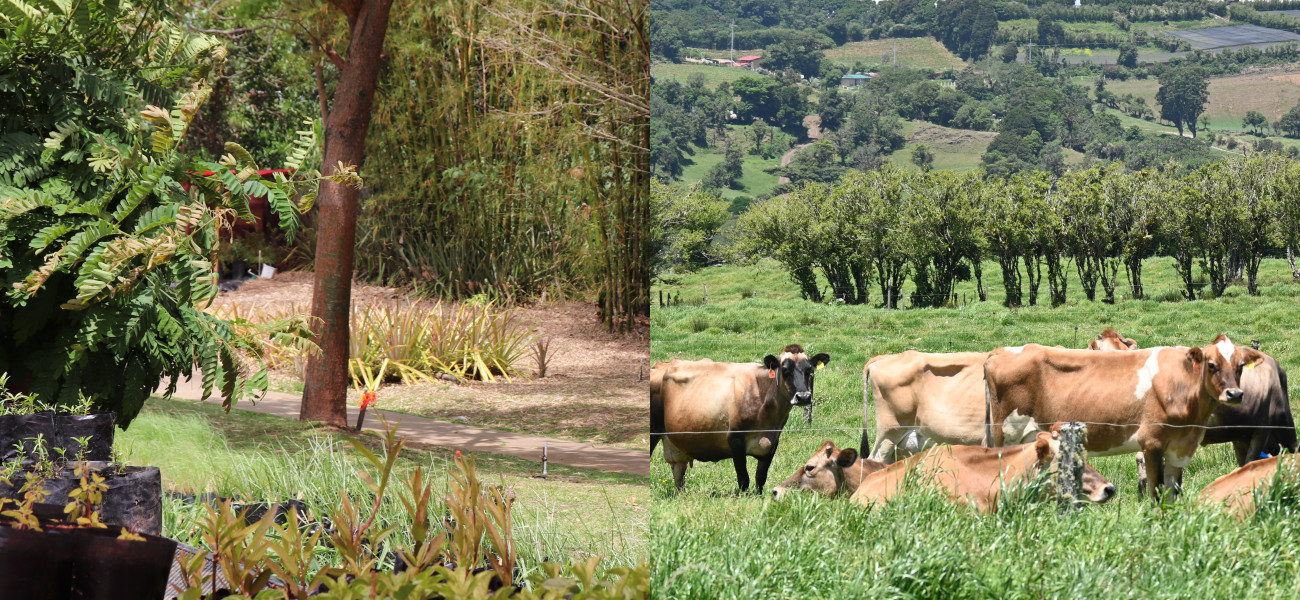
Left: Parque La Libertad; Right: La Valentina farm © GIZ / Dayanna Salazar
After two days of networking and technical exchange (read more) during the 3rd IKI Exchange Workshop for projects in Central America and the Caribbean, it was time to put theory into practice. 21 participants from Costa Rica, Guatemala, Germany, Saint Lucia, the United States, Cuba, the Dominican Republic, Peru, and Spain traveled to different parts of Costa Rica to see the impacts of IKI projects in the country.
Experience 1: Soil recarbonization for sustainable livestock farming
La Valentina is a livestock farm owned by Roger Rodríguez's family, located in the town of Zarcero in Alajuela province, approximately 2 hours from the capital. Before becoming what it is today, the farm was dedicated mainly to growing flowers and strawberries. As a result, the soils were heavily contaminated by the use of agrochemicals and pesticides.
In 2013, when Roger established the dairy farm on his land, he implemented a new soil treatment procedure: since then, the land has been treated with a different kind of organic fertilizer manufactured on the farm itself. It is made from cheese whey, molasses, sulfates, and photosynthetic bacteria, which ferment for a month before being applied to the soil. This has made it possible to clear the soil from contamination caused by decades of pesticide, insecticide, and chemical use. After 15 years, the organic matter levels on the farm have increased, and it is considered to have the best soils in the region. Today, they produce high-quality grass that enables Roger to have a profitable milk production.
Through its partnership with the Dos Pinos cooperative, La Valentina participates in the Recarbonization of Global Soils (RECSOIL) mechanism driven by the Food and Agriculture Organization of the United Nations (FAO) in Costa Rica. Through the IKI project Support Program to Increase Climate Ambition in Land Use and Agriculture through NDC and National Adaptation Plans (SCALA), FAO aims to reward livestock and coffee farmers in the country for their effective soil management in their productive activities.
Experience 2: Implementation of nature-based solutions in urban spaces
About 60 kilometers southeast of Zarcero, in Santa Ana of San José, lies Coopecabañas. The cooperative seeks to combine urban development with environmental preservation and aims to improve the quality of life in the surrounding community. Their efforts are ample: they practice recycling and composting, have planted over 3,000 native trees, and are propagating three strains of plants and trees to restore the native flora and fauna of the region. They have been recognized by the Blue Flag Ecological Program (Programa Bandera Azul Ecológica) in the categories for communities and micro-watersheds.
Recently, Coopecabañas took on a particularly ambitious challenge: the organization aims to develop a communal biological corridor, as a first stage in the development of an interurban biological corridor. Since January 2023, they have received support from the Green Urban Recovery Fund (FRUV), a joint fund between the German Development Cooperation GIZ and the foundation Fundecooperación para el Desarrollo Sostenible. One of the first measures was the planting of 940 trees of around 100 different species in the corridor. Additionally, the organization has received support in creating an economic sustainability plan for the initiative and receives assistance in its management.
Another initiative supported by the FRUV includes two projects at the park Parque La Libertad in Desamparados, a public space that integrates good environmental practices in its management to inspire visitors to the park.
A nature trail was created for the 200,000 annual visitors. It serves as an awareness-raising measure and will provide safe and constructive spaces for recreation as well as capacity development for the communities surrounding the park. A nursery provides native trees and shrubs which will help restore the forest landscape in the park and neighboring interurban biological corridors.
Participants of this field trip interacted with nature by planting native tree and shrub species on Coopecabañas' land and at Parque La Libertad, respectively.
The FRUV seeks to finance urban greening projects in Costa Rica's Greater Metropolitan Area and is implemented by GIZ as part of the Biodiver_City and BioFrame projects, along with Fundecooperación and other stakeholders.
- Country: Costa Rica
-
Project:
- Biodiver_CITY - Establishment of interurban biocorridors
- SCALA: Support Programme on Scaling up Climate Ambition on Land Use and Agriculture through NDCs and National Adaptation Plans
- BioFrame - Supporting the design and first implementation steps of the new global framework for biological diversity
- Contact:
Arturo Ureña, SCALA
Catalina Molina Bustamante, BioFrame
Gloriana Chavarría, Biodiver_City

